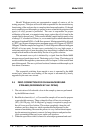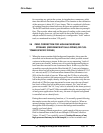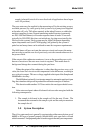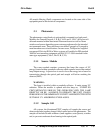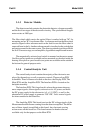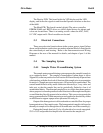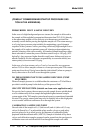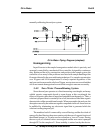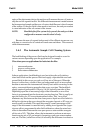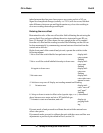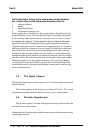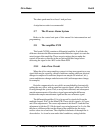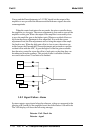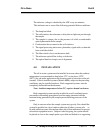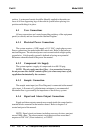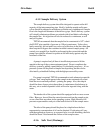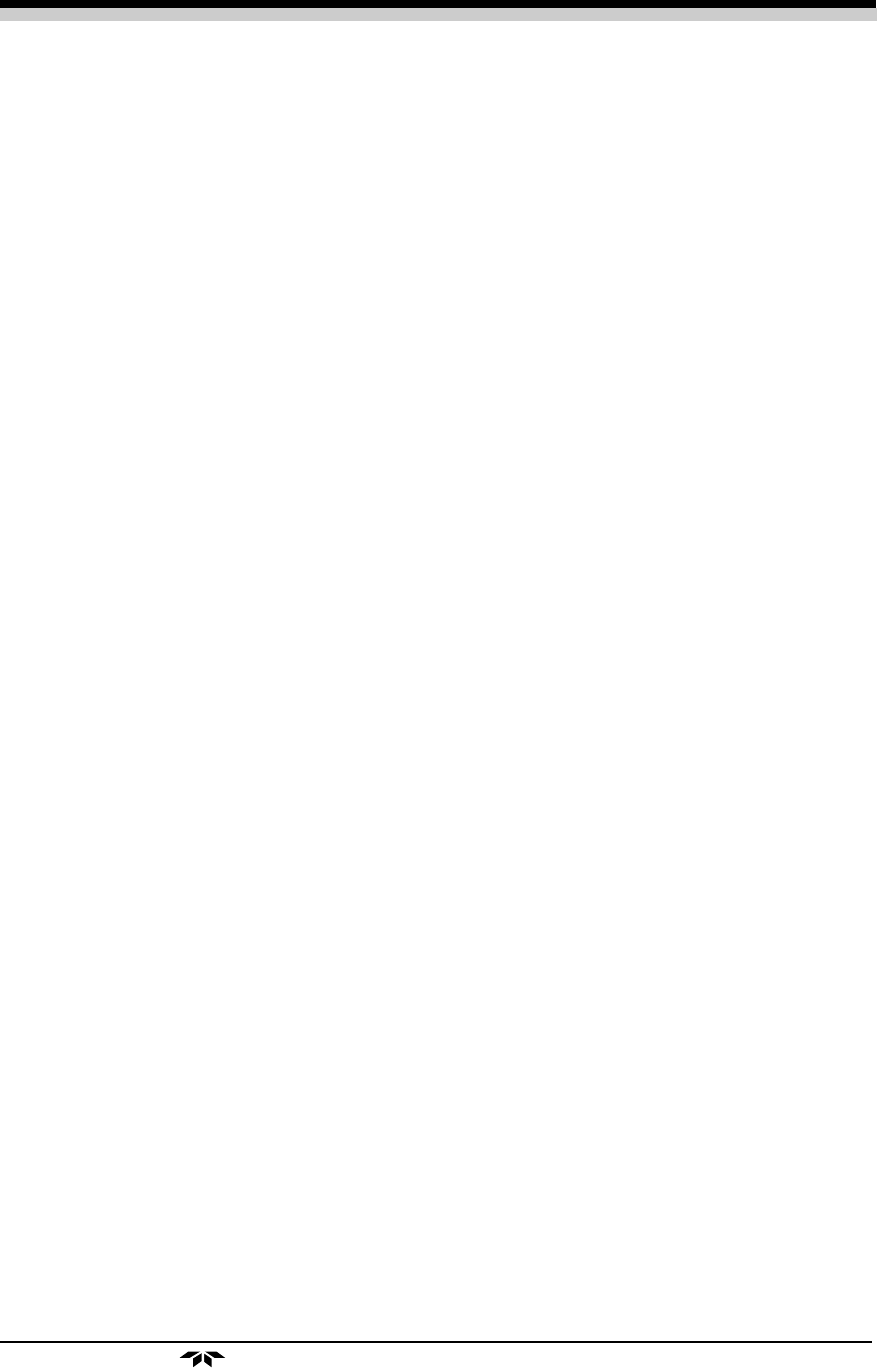
1-14 Part III
Part III Model 6600
Teledyne Analytical Instruments
optics of the photometer design, the analyzer will measure the zero-oil water as
only the non-oil organic fraction. If a differential measurement is made between
the homogenized sample and the zero-oil water, the difference is the oil content
of the stream. If the zero fluid is then made to read zero, the analyzer readout
is a true indication of the oil content of the stream.
NOTE: Should the fine filter system be by-passed, the analyzer is then
configured to measure non-dissolved oil only.
Because the non-oil organic background of the effluent stream can vary
with time, a correction for its variation is made once each hour. This ensures a
valid oil measurement.
3.4.3 The Automatic Sample Cell Cleaning System
The backflushing of the process fluid can be designed in and to occur for
various reasons depending upon the application. For example,
Ultra clean process applications for leaks into the like:
1 steam condensates
2 process cooling water
3 boiler return condensates
In these applications, backflushing is used not to keep the cell windows
clean but to flush out the process fluid and supply a reproducible zero back-
ground fluid (in this case a gas such as oil free air or Nitrogen). When the
process is ultra clean, a clean oil free gas background serves as an excellent
meduim to autozero the instrument on a hourly basis while correcting for the
optics, source and detector anomolies that occur over time. The backflush
supply required (preferred 80-120 psig, 5.6-8.4 kg/cm2g) must be oil free.
Depending upon the oil measuring range of the instrument, a zero offset
factor is programmed into the electronics zeroing function. This is usually set
up at the factory for N2 versus demineralized water. This “zero offset”
eliminates any bias between the ultra clean process liquid zero fluid which is
difficult to obtain on the users site and the surrogate clean air or N2 zero gas
usually readily available. This small bias usually a small percentage of the
range of the instrument is cancelled out by adding in an opposite bias (oppo-
site zero offset, programmed in after field calibration, where the actual zero
offset is determined between the zero pure process water and the surrogate
oil free air or N2). This then, allows the instrument to perform an autozero
function using air or N2 gas instead of preparing a pure zero steam conden-
sate, etc. The bias (called zero offset) is caused by the difference in refractive



